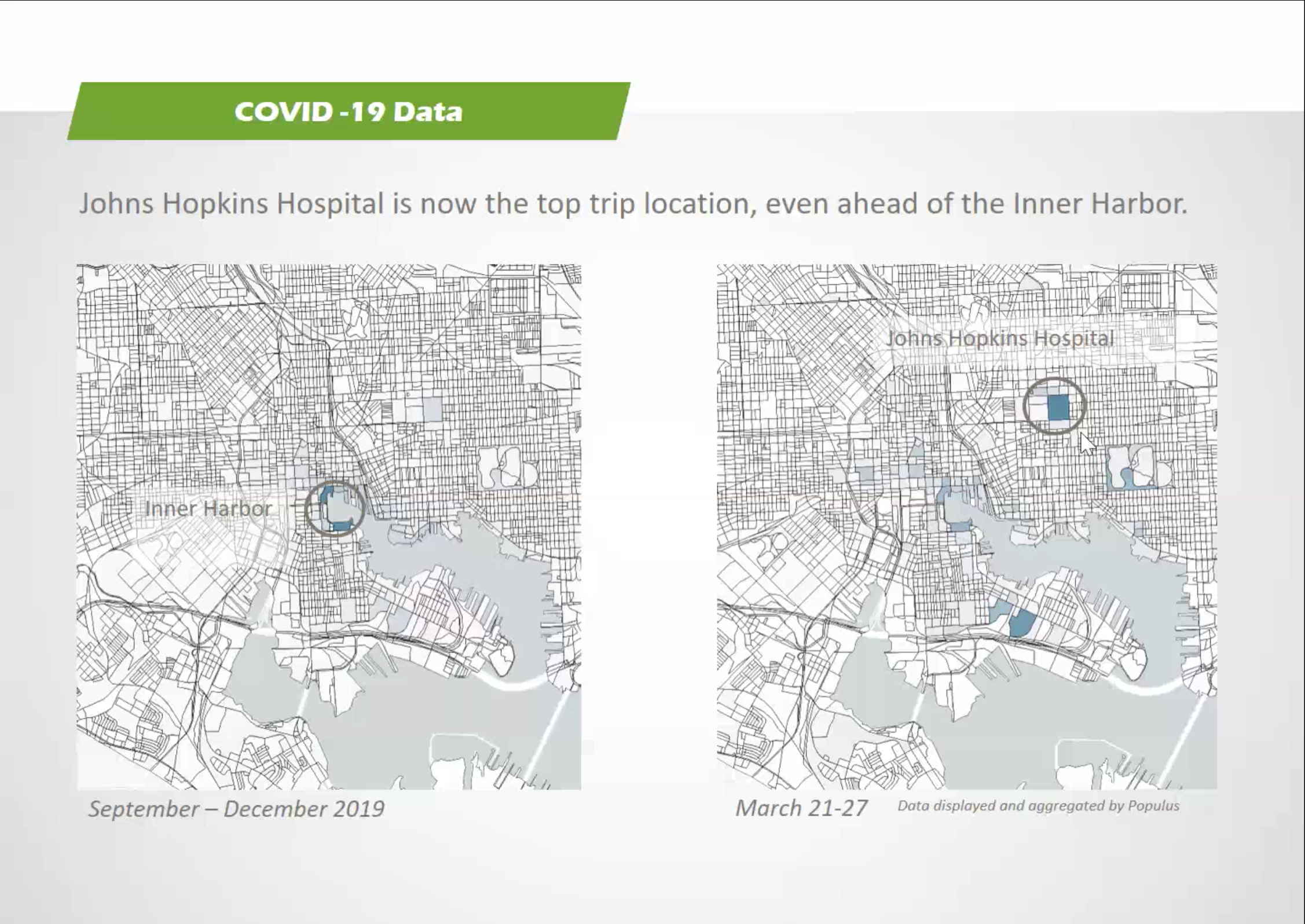Baltimore City has launched a permanent shared mobility program after evaluation of a 6 month pilot program, developed in coordination with Bikemore in 2018-2019, showed high ridership and strong public support for continuation of the program.
Below are some highlights from the rules and regulations. For a copy of the full rules and regulations and more information, please visit the Baltimore City Department of Transportation’s Dockless Vehicles page.
Up to 4 shared mobility vendors are eligible for a year-long permit under the new permanent regulations, which went into effect on August 1, 2019. The permit is extended to the current vendors while Maryland remains in a State of Emergency due to COVID-19.
The current permit holders are:
Contact: 1 (888)‐LIME‐345, support@limebike.com , https://help.li.me/hc/en-us/requests/new
Discount Program: Lime Access
Lime API: https://data.lime.bike/api/partners/v1/gbfs/baltimore/free_bike_status.json
In Summer 2020, Bikemore started partnering with Lime for their Lime Hero program to promote our advocacy. Riders can also make an optional donation through Lime at the end of their ride. Read more about it here.
Contact: 1 (888) 249-9698, support@spin.pm, https://spinbikeshare.zendesk.com/hc/en-us
Discount Program: Spin Access
Spin API: https://web.spin.pm/api/gbfs/v1/baltimore/free_bike_status
Fleet Size
Each permit holder is allowed to deploy up to 1,000 vehicles of a single vehicle type. If a permit holder chooses to deploy multiple vehicle types, they may deploy an additional 1,000 vehicles with a minimum of 150 of each vehicle type. Permit holders may also deploy an unlimited number of accessible vehicles, which are vehicles designed for people living with disability.
Fleet Distribution
Under equity guidance from the adopted rules and regulations, permit holders must distribute a minimum of 5% of their fleet into each of the nine city planning districts, and can deploy no more than 25% of their vehicles in any single district. If more than 35% of vehicles are ridden into a single district, the operator must rebalance those vehicles to the 25% threshold or lower.
Additionally, there are 20 defined one block equity zones in the permit. These equity zones are centered around public transportation hubs, libraries, business corridors, and other areas of likely high ridership that are outside of the central city. A minimum of 4 vehicles must be placed in each equity zone block by 8:00 each morning. These equity zones will eventually receive dedicated parking corrals for vehicle placement, installed by Baltimore City Department of Transportation.
Payment
Permit holders are allowed to set their own pricing, but are not allowed to differentiate pricing between any user groups except for a defined low-income access plan. They must also notify Baltimore City Department of Transportation about any changes in pricing.
All permit holders are required to offer cash payment options, pay without a smartphone options, and a low-income access plan to any SNAP/WIC enrolled individuals.
Data
Permit holders are required to share data with Baltimore City Department of Transportation via the Mobility Data Specification, and are also required to provide a publicly accessible General Bikeshare Feed Specification.
Revenue/Expenses
Each permit holder is required to pay a $70,000 permitting fee, a $10,000 performance bond, and a $0.10 excise tax per rental.
The annual permitting fee covers the cost of Baltimore City Department of Transportation shared mobility program staff, in addition to innovative public engagement and infrastructure:
A Resident Mobility Advisory Board will be established, similar to the successful Food Policy Advisory Committee. Resident Mobility Advisors will be appointed from communities across the city, and will receive a paid stipend to meet six times a year to discuss mobility challenges in and solutions for their communities. ($6,000)
20 shared mobility corrals will be installed annually based on an evaluation of ridership and equity priorities. These corrals will be installed either on the street or sidewalk, and provide designated parking areas for shared mobility vehicles as well as private bikes or scooters. ($20,000)
Existing mobility lanes will be evaluated and improved through resurfacing and patching to provide safer travel surfaces for shared mobility vehicles. ($100,000)
Baltimore City Department of Transportation will produce community education materials ($19,000) as well as provide five $2,000 community micro-grants for education and outreach ($10,000)
The refundable performance bond covers anticipated city expenses, including the BPD Special Marine Unit for harbor retrievals, Baltimore City Department of Transportation towing services for improperly parked or damaged/abandoned vehicles, and damage to public property. Any funds not expended on these city services will be refunded to the companies at the end of the permit.
The excise tax of $0.10 per ride goes into the general fund. The Pugh administration committed to restricting these revenues to funding bike infrastructure installation in Baltimore City, however it is unclear if this restriction will be honored given we have a new government.









